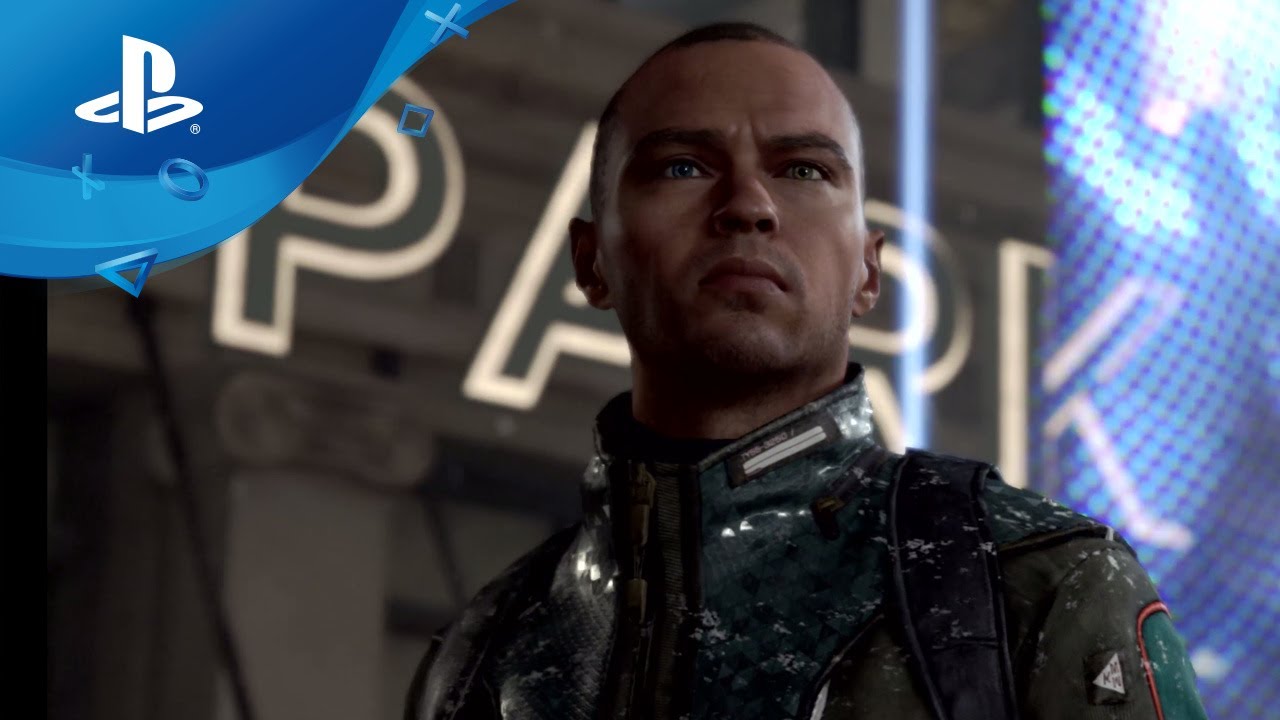It’s been three years since Quantic Dream announced Detroit: Become Human, and quite frankly, we really didn’t know much until this year’s PlayStation E3 Press Conference. I speak for myself when I say this, but Beyond: Two Souls was hands down one of the biggest disappointments of the PlayStation 3 generation. With titles like Indigo Prophecy and Heavy Rain, which gave players plenty of options and story changing decisions, Beyond left players feeling empty. Beyond promised the same thrill of Heavy Rain and fell short – Detroit seems to make up for that, giving players a sense of decision making, consequence and the intensity of making difficult decisions in short amounts of time.
The demo starts off with an android named Connor, who is sent to a high-rise apartment in a futuristic downtown Detroit to investigate a hostage situation. You’re told a “deviant” android has taken someone hostage and two law enforcement officers have already been killed. As you walk into the chic apartment, a middle aged woman being carried out by a cop comes from around the corner. She quickly notices Connor is an android – and is very vocal about her opinion on Connor’s arrival. “You sent an ANDROID? You can’t DO that!” Expressionless, our new android friend continues on to start it’s investigation.

Detroit offers a variety of pacing – unlike David Cage’s past titles, this game wants you to look around every corner, under every table, and even up and down victim’s dead bodies. As you collect more information and gather evidence from various areas within the crime scene, a bar pops up in the upper left corner stating your probability of mission success. At first, I was scared I wasn’t going to succeed since my initial conversation knocked the bar down to 49%, but by examining items in the apartment and reconstructing events, I was able to complete the mission successfully (saving the hostage) with a 99% success rate.
The reconstruction of events was very interesting and offered a slower flow of things. Two things triggered this mechanic in the demo: an empty gun case and a dead policeman. By scanning certain points (triggered by a prompt to hold down the triangle button) on both the empty gun case and dead police officer, another progress bar was brought up on the bottom of my screen. For reconstructing scenes, you have to find the scannable parts of the evidence in question. To complete the scenario, you must rewind and fast forward all while watching the instance from several angles.

My only real beef with Detroit was the classic awkward joystick motions any David Cage fan is all too familiar with. Picking up certain items or interacting with someone felt like prepping for a Tekken 10-hit combo. If the game is as good as it seems to be from the playable demo and trailer at the press conference, much like Heavy Rain’s awkward controls, it could easily be seen as an oversight. Graphically the game excels in facial movements and textures, whereas the bodies could use a little work. Seeing as how this is nowhere near the final build, this can very easily be improved upon.
Detroit: Become Human has no release date and is a Sony PlayStation 4 exclusive.
Discover more from The Koalition
Subscribe to get the latest posts sent to your email.
